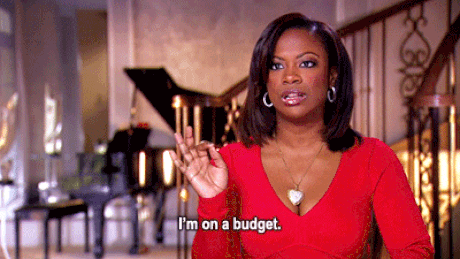
So many of us have found ourselves in unprecedented situations recently. I know for a fact I’m not alone in feeling like the world’s chaotic levels of “WTF-ness” continue to rise, leaving little wriggle room to breathe.
Unfortunately, job loss and insecurity has been one of the most widespread consequences of the COVID-19 pandemic. According to the Australian Bureau of Statistics, only 56% of Aussies over the age of 18 were working paid hours during the first week of April, with 37% without a current paid job altogether. Huge.
As a result of unemployment, some young people have found themselves depending on their partner’s income for the first time.
Now, there isn’t necessarily a “right” or “wrong” way to manage money in a relationship, but, there are a few things you can do to ensure your financial wellbeing is maintained, especially if a situation like this has occurred.
Money is an integral element of all serious relationships, and discussing it can be tricky, so we’ve put together a lil’ guide of the best way to keep yourself, and your partner safe and happy in these circumstances.
Have An Open Chat About The Sitch
It’s not an easy convo to have, but having a discussion with your partner about ~the sitch~ will probably take an initial load off.
Laying all your feelings and concerns out on the table initially will hopefully take some of the stress off your back and, is probably the first logical step into tackling the whole thing as a team.
Total transparency about what ya got going on is absolutely essential, so don’t hold back in giving a full-on run-down about the state of your wallet.
According to Catherine Fitzpatrick, General Manager Community and Customer Vulnerability at CommBank, having “open, and respectful conversations about money in relationships” will allow you to understand what “financial skills, attitudes, values, money management strategies and goals” each person brings to the relationship.
Once you’ve gotten a better understanding of just how ya thoughts about dosh differ, you’ll be able to handle the financial situation in a way that suits you both best. Sounds like a plan, right?

Set Initial Boundaries & Expectations
If COVID-19 has left you without an income, your financial responsibilities in the relationship may change.
There are plenty of variables that play into this one, but laying down what you and your partner expect of each other during this time will save so much tension and trouble down the track.
Now, there isn’t an exact set of rules around who should take on what in a sitch like this, but according to Fitzpatrick, there are three key pillars to keep in mind when making decisions around bill payment, rent and other costs.
- Both people in the relationship should make decisions, even if one person earns or manages the money.
- Both partners have a right to get information, ask questions and understand the couple’s financial position.
- Both partners have an equal voice.
So whether it’s deciding if you’re going to cancel your Netflix subscription or maybe even set up a joint account for the time being, keeping those three tips in mind will ensure you’re both taken care of.
“It’s imperative that both partners have an equal voice in decision making, both partners are transparent and share information, and financial decisions and responsibilities are shared, regardless of who is contributing more financially,” adds Fitzpatrick.
You can suss out this handy lil’ guide for tips on how to have good money conversations with your partner here.
List Your Upcoming Expenses & Make A Budget
When making a budget, it’s best to base it off how often you are paid, and the frequency of your bills and costs.
Remember any essential and non-essential expenses you’ll have over this time and log them into a diary, calendar and if you’re feeling fancy, even a spreadsheet works. Or, if you don’t fancy yourself a mathematician, there are plenty of online budget calculators, like this CommBank one to help you manage ya dosh.
“Mapping expenses out clearly can help you better understand when you might need to put a little extra aside or hold back on some of the non-essential spending,” said Fitzpatrick – so there may be some wiggle room for you to order guac on your next burrito.

Assess Your Savings
It’s important to remember that in times like this, a little can go a long way.
If you do have savings, it could be a good idea to figure out exactly how much you have available to help put together your financial plan for the next couple of months.
If there was a larger goal you were saving up for, assessing how it’d impact your long-term financial wellbeing before diving in.




